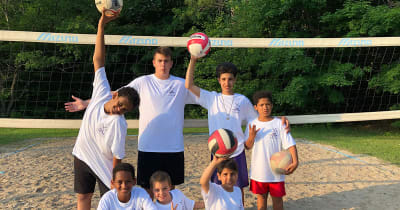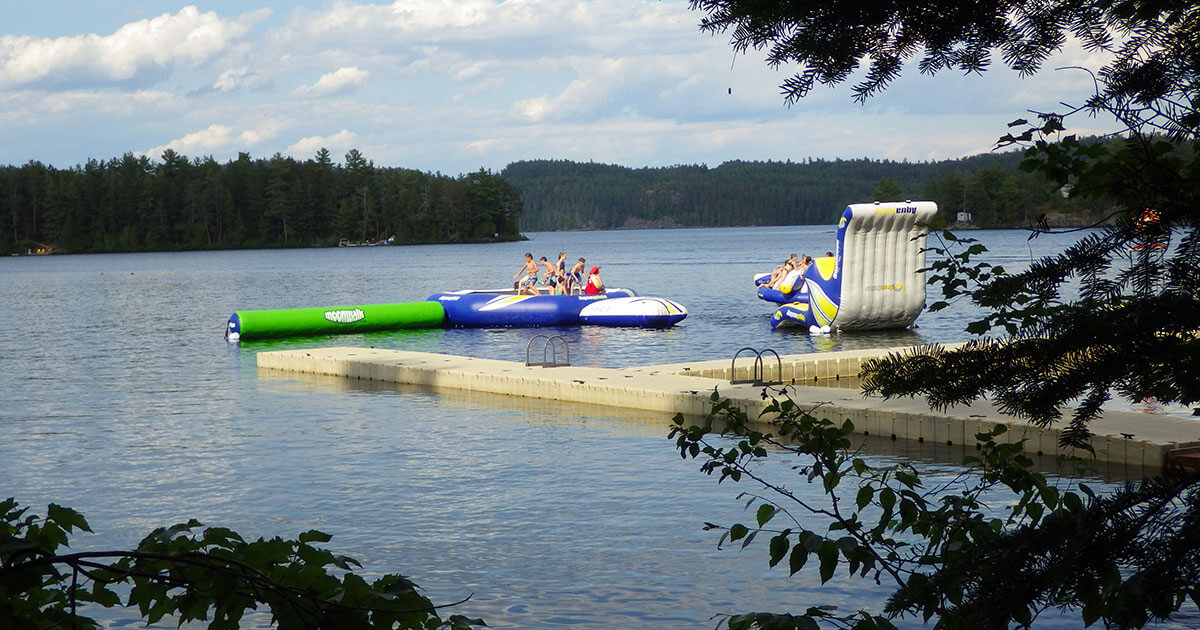You might also like
In addition to after-school, weekend, and winter ESL programs, there are summer options available. For instance, you might also look into the following:
English as Second Language camps: across the country, these camps help kids as young as seven years old develop English skills, while being given plenty of time to have fun both indoor and out.
ESL overnight camps: these are a great option for international students. Many of these camps offer boarding, meals, and other necessities. They also offer full immersion in the culture, language, and in camp life. And they integrate English learning with traditional camp activities, like swimming, canoeing, and hiking.
Day camps with ESL: these can be perfect for kids who want to remain closer to home to develop or brush up on their English. Most day camps are full-time, offering all-day instruction, five days a week. Some camps offer part-time ESL programs, though.
Who are ESL classes for?
The short answer: anyone who wants to learn English. This includes kids as young as six years old, as well as mature adults.
The longer answer: ESL classes are suitable and ideal for many people, with a wide range of backgrounds and goals. This list includes but isn’t limited to:
- Immigrants who have just moved to the country
- Foreigners looking to study or work in Canada
- Non-native speakers with no English background
- Non-native speakers looking to brush up on their English
What ESL classes offer
ESL classes are really for anyone looking to learn or improve their English. They offer students the opportunity to become competent or fluent in this language, in terms of speaking, comprehension, reading, and writing. Classes are offered at a variety of levels, from beginner (those with no English background) to more advanced speakers (those with a solid foundation in English).
ESL classes have many well-known benefits. First of all, they have a host of academic benefits, including the following:
- High-level instruction
- A standardized curriculum
- Highly-qualified native instructors
- An immersive language environment
- Unique English-learning activities
- Individualized learning
- Hands-on, experiential learning
- Communication and interaction with others learning English
In addition to these academic benefits, many ESL programs offer other potential perks. While not all programs offer all of these (note: this isn’t an exhaustive list), many do:
- Networking and making connections
- Making friends
- Learning about a new culture
- Participating in fun activities
- Going on field trips
- Broadening one’s horizons
Choosing the best ESL class for your child
When looking for the right ESL class, you’ll need to focus on what’s important to you and your child. This may include location, cost, programming, scheduling, teaching approach, and much more.
We recommend visiting those who run the program in person. One great way to do so is through the Our Kids Camp and Program Expo, held each winter in Toronto. At the expo, you can speak directly with the directors, staff, and teachers of ESL programs and camps. If you’re interested, you can also talk with the staff of many other types of camps and programs.
Be sure you’ve found the right program
Once you’ve done your initial research, you should be able to come up with a shortlist of potential ESL classes or programs for your child or teen. Having done this, you’ll want to learn more about each of these to ensure you find the right fit. It’s important to ask staff many questions. Here’s a list to get you started:
- What level of classes do you offer?
- When do these classes take place?
- What is your teaching approach?
- What credentials do your instructors have (e.g., TEFL)?
- How many students are in the class, and what is the student-to-teacher ratio?
- What textbook(s) do you use?
- What other instructional materials do you use?
- What exactly are your learning objectives?
- Do you offer field trips?
- Are you connected with any schools, organizations, or associations?
Other helpful information
Our Kids provides a wide range of resources on language education, including ESL education. Here are a few articles we think you’ll find especially helpful:
If you want to learn more about ESL education and instruction in Canada from other authoritative sources, there are many helpful articles to consult. Here are a few we recommend:







